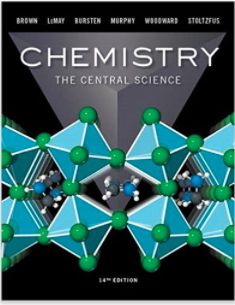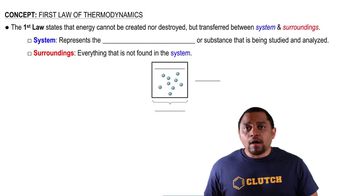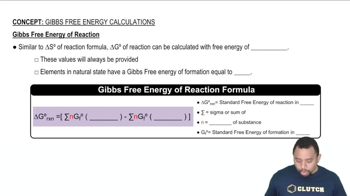The automobile fuel called E85 consists of 85% ethanol and 15% gasoline. E85 can be used in the so-called flex-fuel vehicles (FFVs), which can use gasoline, ethanol, or a mix as fuels. Assume that gasoline consists of a mixture of octanes (different isomers of C8H18), that the average heat of combustion of C8H18(l) is 5400 kJ/mol, and that gasoline has an average density of 0.70 g/mL. The density of ethanol is 0.79 g/mL. (a) By using the information given as well as data in Appendix C, compare the energy produced by combustion of 1.0 L of gasoline and of 1.0 L of ethanol.

Consider a system consisting of the following apparatus, in which gas is confined in one flask and there is a vacuum in the other flask. The flasks are separated by a valve. Assume that the flasks are perfectly insulated and will not allow the flow of heat into or out of the flasks to the surroundings. When the valve is opened, gas flows from the filled flask to the evacuated one. (a) Is work performed during the expansion of the gas? (b) Why or why not?
 Verified step by step guidance
Verified step by step guidance
Verified video answer for a similar problem:
Key Concepts
Work in Thermodynamics

Free Expansion

First Law of Thermodynamics

The air bags that provide protection in automobiles in the event of an accident expand because of a rapid chemical reaction. From the viewpoint of the chemical reactants as the system, what do you expect for the signs of q and w in this process?
A sample of gas is contained in a cylinder-and-piston arrangement. There is an external pressure of 100 kPa. The gas undergoes the change in state shown in the drawing. (b) Now assume that the cylinder and piston are made up of a thermal conductor such as a metal. During the state change, the cylinder gets colder to the touch. What is the sign of q for the state change in this case? Describe the difference in the state of the system at the end of the process in the two cases. What can you say about the relative values of E?
